...a guided tour.
The great Duff McKagan once said something like “a bass player is doing his job when two different pieces of music sound different, and the audience knows it but really can’t explain it.” That largely sums up the fantastic anonymity of the bass, to all but bass players and prog fans. In fact the vast majority of music lovers have probably only noticed a song’s bass line just a few times, and have likely never thought about bass tone, which bassists of course spend many hours and many dollars crafting so they can — quietly and anonymously — influence the whole vibe of a song.
The main goal of this post is to give folks a a sense for the variety of bass sounds that permeate popular music, by presenting and discussing snippets of songs you probably already know. I’ve tried to choose clips where the bass is clearly audible, but in some cases you’ll have to work a little to really catch on to what the bass sounds like. Tip of the day: you don’t need fancy speakers to listen carefully to electric bass, but if you’re listening on a phone or tablet without headphones, save yourself a few minutes and stop reading now... electric bass is typically entirely inaudible on tablets and phones.
And I’m organizing the sounds I’ll discuss by putting them into a few categories (seven, to be exact). Of course, I understand it’s ridiculous to try to put all bass sounds in the universe into categorical buckets. Within the huge space of “electric bass for popular music”, I’ve tried to pick examples that highlight some of the canonical tones. In reality 99% of recorded bass is going to be somewhere in between the categories I lay out here. In engineering terms, I’m trying to lay out a basis for bass sound hear every day. A basis is a set of examples that describe some larger space, where everything in the larger space can be represented as a combination of the examples. So I’m not claiming that every bass sound I hear on the radio falls into one of these categories, but hopefully most can be described as somewhere in betwen these categories. Let’s call it a bassis (hahaha that was f’ing clever, no?). Also I’m only commenting on music I encounter in my rock/pop life; I have nothing at all to say about jazz or show tune bass. And even within my world, I’m focusing mostly on electric bass, and largely excluding synthesized bass, though I’ll include a few sampled/synthesized examples because sampled bass makes up such an important chunk of popular music (nearly everything in modern hip-hop and R&B).
And as best I can stick to this promise, this is not going to be “Dan’s top ten most awesome favoritest bass sounds”, though I’ll make no effort to hide my opinions. In fact, it turned out that there was a logical ordering of common bass tones moving roughly from my least favorites to my favorites, so that’s about what you’ll get. So with that said, crank it up, and let’s get started with a list of the basic tones that I’m going to discuss.
The Sounds of Boom:
A Few Bass Tones in My Slice of the Rock/Pop Universe
| What I Call It | Some Examples I’ll Use |
|---|---|
| The Rumble | Kanye West, T.I., Notorious B.I.G. |
| Overdriven Rock | The Ramones, Green Day, The Sex Pistols, Skid Row, Guns n’ Roses, The Cure |
| Bright Jazzy Rock | Yes, Rush |
| Tight Metal | Megadeth, more Megadeth |
| Classic Thumping P | Parliament Funkadelic, Dr. Dre (via sampling) |
| Vintage Smooth | The Supremes, Queen, Led Zeppelin |
| Modern Drive | Jason Mraz, Gretchen wilson, Miranda Lambert |
Tone #1: The Rumble
I promised I’d start with bass sounds that I’m not really into... rumble is the bass you “feel but don’t hear”. Or often, if you can hear it, you can’t quite tell where notes start and stop. Lots of bass, no attack. In frequency terms, this means basically everything in the bass is below 100Hz, without the attack of a finger or pick that usually clocks in at a few hundred Hz.
Some rumbly songs, like the Kanye West track I excerpt below, just sound rumbly all the time (this is a particularly awesome example, since - although I swear I didn’t notice at the time I picked it - the lyrics start with “make the ground move, that’s an ass-quake”). But other rumbly songs sound like the bass fades in and out. Often it’s not really coming and going, it’s just dipping so low that you can’t hear it (but it can still shake the earth and make your ears hurt). The T.I. song I use as an example below has this property, at least to my ears. At around 6 seconds into the clip, it seems to get quieter in the bass, then around 10 seconds pop back in for one note, then out again. This is one of the only times in writing this post that I fired up a spectrum analyzer to confirm what I was hearing: in fact when it gets “quiet”, it’s just dropping down to a low rumbly E, the same volume as the low rumbly B (a little higher) that you hear at the beginning of the clip and at 10 seconds. Same with the Rihanna clip, always loud in the bass if you look at the spectrum, but it sounds like it’s coming and going.
Lest anyone think this is just and old guy complaining about how today’s hip-hop wants to rock your neighborhood, I also included a Notorious B.I.G. clip from 1994 that’s also pretty rumbly; this has been the sound of much of hip-hop for a couple decades. I’ll list an exception below, in the “Thumping P” category, a hip-hop track from around the same time with a much clearer bass sound. And in fact, even in this B.I.G. clip that I’d definitely call “rumbly”, the bass is much quieter compared to the rest of the track than most modern hip-hop, and makes my ears much less sore.
Overall, the rumble is not my thing, and I’m excited to move on to the next set of examples. My ears are tired.
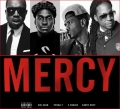 |
Mercy.1 (2012) (slightly NSFW) Bass: Synthesized What I Call It: Rumble |
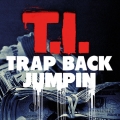 |
Trap Back Jumpin (2012) Bass: Synthesized What I Call It: Rumble |
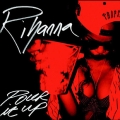 |
Pour it Up (2013) Bass: Synthesized What I Call It: Rumble |
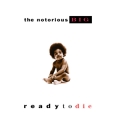 |
Gimme the Loot (1994) Bass: Synthesized What I Call It: Rumble |
Tone #2: Overdriven Rock
Part of punk was about being loud, and sounding even louder than you were. That meant the beginning of a trend where bass would get a little brighter (i.e., more high-frequency content) than it had been in the ’50s and ’60s. Brighter tones came via a pick (the ’70s saw a huge increase in picked bass), via the replacement of flatwound string with roundwound strings (which are brighter), and with allowing the bass to distort a little, even if not quite at distorted-guitar levels. There’s definitely brighter bass out there than punk and hard rock bass, and we’ll get there a little later, but compared to earlier recordings, bass was definitely cutting through the mix more when punk arrived.
In general, I agree with the notion that “tone is in the fingers”, and a great bassist will sound like him/herself on any reasonable collection of gear. With that said, the sound of punk bass - and much of the hard rock that was inspired by punk - almost always lands on a particular combination of gear: a Fender Precision Bass (i.e., “Fender P”), played with a pick, into an Ampeg SVT, with some overdrive. This is such a canonical combination that numerous articles have been written about its ubiquity, including this fantastic overview at Premier Guitar, from which I grabbed a few of these examples.
I’m going to list these examples chronologically; the earliest are the true punk inspiration for this tone (The Ramones and The Sex Pistols). These two bass lines will be some of the toughest on this post to pick out for folks who have never listened to a bass before, because punk bass was usually played right along with the guitar, and because the recordings in general were gritty by today’s stanadrds. I think it’s fair to say that much of ’80s and ’90s hard rock bass was heavily inspired by punk bass, even if the gear changed a little. So to my ears these all fall pretty sensibly into one cluster of tones. Heavy and gritty, bright enough to cut through, but still with bass filling out the bottom. “Fascination Street” and “Sober” are probably the most controversial examples, but to me they’re punk-caliber gritty.
This is still on the list of “tones I don’t really like”. In fact the only artist here I’m a big fan of is GnR, and I was never into Duff’s bass tone.
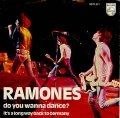 |
Do You Wanna Dance (1977) Bass: Dee Dee Ramone, picked Fender P into Ampeg SVT What I Call It: Overdriven Rock |
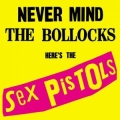 |
God Save The Queen (1977) Bass: likely Steve Jones, likely picked P into an Ampeg SVT (source) What I Call It: Overdriven Rock |
 |
Rocket Queen (1987) Bass: Duff McKagan, picked Fender Jazz, likely GK head and cab What I Call It: Overdriven Rock |
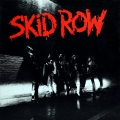 |
Piece of Me (1989) Bass: Rachel Bolan, likely Fender P What I Call It: Overdriven Rock |
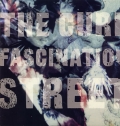 |
Fascination Street (1989) Bass: Simon Gallup, gear unknown What I Call It: Overdriven Rock |
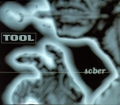 |
Sober (1993) Bass: Paul D’Amour, Rick 4001, likely picked into Mesa head/cabs What I Call It: Overdriven Rock |
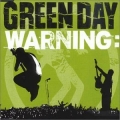 |
Warning (2000) Bass: Mike Dirnt, picked Fender P, likely Mesa head and cab What I Call It: Overdriven Rock |
Tone #3: Bright Jazzy Rock
While punk was exploding in volume and energy, prog was exploding in clarity and precision, and the prog scene in the ’70s saw the bass playing a much more lead-instrument role, particularly in trios that didn’t have a mountain of guitars to fill things up. The technical nature (and often the speed) of prog, much like metal (which I’ll get to below), also required a brighter tone and tighter attack from the bass, so everything would feel more completely in sync with guitar and drums. So the group of bass sounds I call “bright jazzy rock” is basically Rush, Rush, more Rush, and everything inspired by rush. But here you’ll hear the bass cutting very clearly through the mix, often as distorted as a lead guitar. Geddy Lee exemplified this distorted tone, and he probably had the tightest attack of any bass player who ever played with his fingers. It’s crazy how picked his bass sounds at times, all the tight attack and mid-range honk that usually means “pick”. In “Limelight”, your first thought might be that you’re hearing the guitar, but no, that’s him blasting away on the bass.
This is also the first category of bass tones that makes up a big chunk of answers you’d get if you asked a room full of bass players “what’s your favorite bass tone?”. In fact, I did that (the room was virtual, but the principle applies), and Chris Squire and Geddy Lee led the list. For me... still not my thing. With that said, there’s no doubt that Chris Squire and Geddy Lee are two of the greatest bass players of the electric-instrument era, or that they’ve inspired million of prog-tone-seekers to buy Rickenbacker 4001’s or Fender J’s (the canonical instruments of the genre).
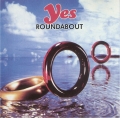 |
Roundabout (1971) Bass: Chris Squire, Picked Rickenbacker 4001 or RM1999 What I Call It: Bright Jazzy Rock |
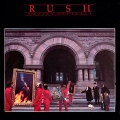 |
Limelight (1981) Bass: Geddy Lee, likely a Rickenbacker 4001, possibly Fender J What I Call It: Bright Jazzy Rock |
 |
Tom Sawyer (1981) Bass: Geddy Lee, likely Rick 4001, possibly Fender J (Rick in this studio video) What I Call It: Bright Jazzy Rock |
 |
The Spirit of Radio (1980) Bass: Geddy Lee, likely a Rickenbacker 4001 What I Call It: Bright Jazzy Rock |
Tone #4: Tight Metal
When metal really became metal (I don’t call anything in the ’70s “metal”), the speed of the guitars and the kick drum needed a bass sound that could keep up, which made for almost ubiquitous use of a pick, and usually basses and amps with brighter tones than the P-Bass’s of the ’70s. Gallien Kruger, Hartke, Jackson, and EMG became the sounds of “heavy metal”, and still are today. Another aspect of metal bass - even more than in punk - was tight synchronization between the guitars, the kick drum, and the bass, such that they were almost one instrument. This makes the bass hard to pick out at times for novice ears, especially in early metal with less clarity in the recordings.
Dave Ellefson (from Megadeth) summarizes this really nicely in this interview at Music Radar:
“I find that playing with and around the guitar riff has allowed me to have my biggest impact as a bass player. It’s also a big reason why I mostly play with a pick, because I can be very articulate and precise in how I perform my lines and make them crisp and clear – the way the guitars sound” ... “When you’re playing metal, you don’t want to do anything that deviates from the riff. The riff is king in metal music. If you ask me, it should be king in all music, but especially in metal. In fact, there are times when all of the stringed instruments in the band should be playing nothing but the riff.”
I loves me some Megadeth and some Dave Ellefson, so I’ve used a couple of informative Megadeth examples here. In “Holy Wars”, six seconds into the clip, the bass enters, doubling the guitar an octave down, so you can hear the riff with and without the bass here. The drums play the riff as well, so this a canonical example of the typical metal riff arrangement. In “Countdown to Extinction” (which is more modern and a little more “pop”; I’d actually put a little more in the “hard rock” tone), the bass starts high and bright, but drops an octave when the vocals come in (at 15 seconds in this clip), for a slightly more typical metal tone, then when the guitars come in at 30 seconds (right before I stop the clip), you get an even more typical metal mix, with the bass playing deep but with a sharp attack.
“Peace Sells” is much more like an ’80s hard rock song, and I couldn’t really separate this from the “overdriven rock” examples above (e.g. Rocket Queen, Piece of Me), which illustrates the slightly-arbitrary divisions I’m making here, which are partially about tone but partially about arrangement. All information on the Interwebz suggests that Ellefson is playing exactly the same equipment on “Peace Sells” that he does on “Holy Wars”, which to me sounds super-metal.
.jpg) |
Holy Wars... The Punishment Due (1990) Bass: Dave Ellefson, likely picked B.C. Rich Mockingbird, likely GK head, Hartke cabs What I Call It: Tight Metal |
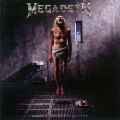 |
Countdown to Extinction (1992) Bass: Dave Ellefson, likely picked Jackson w/active EMG’s, likely GK head, Hartke cabs What I Call It: Tight Metal |
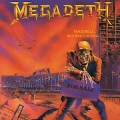 |
Peace Sells (1986) Bass: Dave Ellefson, likely picked B.C. Rich Mockingbird, likely GK head, Hartke cabs What I Call It: Tight Metal |
Tone #5: Classic Thumping P
Finally, we arrive at the slice of the bass world that makes me want to play bass, which I’ll split over the next three categories. First we get the classic funk sound of the ’70s, which is much less bright than anything in my “overdriven rock”, “bright jazzy rock”, or “tight metal” categories. No distortion + no pick + darker-sounding equipment == none of the sizzly high-end we’ve heard through those categories. But at the other end, funk bass has almost the same requirements for precision that prog does, so the rumbly-rumbleness of the “rumble” category would be a disaster here as well. So typically we get about as sharp and clear an attack as fingerpicking will allow, without the sub-sub-sub-bass frequencies that would come later with hip-hop. Mmmmmm.
The Fender P is canonical here as well, though neither of my examples involve a P (although consensus is that the second song was played on a Fender Tele Bass that was briefly manufactured with single-coil pickups, with flats, so as close to a P-Bass as one could get without the word “Precision” on the headstock). The genre is likely a mix of flatwound and roundwound strings (as I mentioned earlier, all the hard-rock tones are played on roundwounds, which are brighter, and are almost ubiquitous today).
One of the more satisfying moments of putting this post together was my discovery of the origins of “Nuthin’ But a G Thang”, which I assume that everyone who was cooler than me in high school probably already knows, but I didn’t. This song is sampled from Leon Haywood’s “I Want’a Do Something Freaky To You” (1975), though in this case “sampled” understates things a little; basically the entire track other than the vocals is replicated. When I came across this looking through ’90s hip-hop, looking for “rumble” examples, I thought “this is incredibly not-rumbly, and totally sounds somewhere between funk and motown.”
Turns out Haywood’s bassist, according to the Interwebs, was Wilton Felder, who traveled in the soul, funk, and jazz scenes, but is known best for his work on Motown records, notably “I Want You Back”, which might well be my favorite bass part that isn’t included on this post. This was cosmic reassurance that I’m not just making shit up. I put this in the more funk-like category because the attack is somewhat heavier (i.e., the bass line is more percussive and thump-y) than most of what’s in my “vintage smooth” category (e.g. most of Motown bass), but it’s a close call.
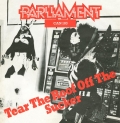 |
Give Up the Funk (Tear the Roof off the Sucker) (1976) Bass: Bootsy Collins, crazy custom space bass What I Call It: Classic Thumping P |
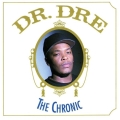 |
Nuthin’ But a ‘G’ Thang (1992) (bass 1975) Bass: Wilton Felder, reportedly single-coil Fender tele bass with flats, direct What I Call It: Classic Thumping P |
Tone #6: Vintage Smooth
Though I’m making a somewhat arbitrary distinction here, the not-too-much-treble, not-too-much-bass sound of the “thumping P” category takes another form when the attack gets calmed down a little, so the sound is less percussive, and notes are allowed to sustain a little longer. This is what I’ve labeled the “vintage smooth” category, and here we arrive at my undisputed all-time favorite bass sounds. “Keep Me Hangin’ On” would be the most borderline here, with a sound almost as percussive as the more funk-oriented sounds I highlighted above, but definitely the attack is toned down a little here. Toning down the attack even a little more, and adding just a little more bass and a tiny bit of overdrive (without making things any brighter) takes us to “Killer Queen”, probably my favorite bass recording ever. Both of these sounds are P-bass + flatwounds. Turns out P-basses are awesome.
But many folks would say that if you made up any category of bass tones called “vintage smooth”, it would be hard not to make John Paul Jones (of Led Zeppelin) the centerpiece of that category. JPJ’s bass sounds are often very melodic and at times are even the lead instrument (as I’d say is the case in the clip below from “Ramble On”, but never overdriven, and never in your face. I.e., it always sounds like a bass, and the attack is always pretty gentle. Debate ragse on the Interwebs about whether he used flatwound or roundwound strings, since he was recording right around the time that most of the world was discovering roundwounds. Consensus (based largely on his own very cryptic discussions of the topic in interviews) is that he played rounds, but he (and his engineers) made rounds sound more like flats than anyone ever has.
.jpg) |
You Keep Me Hangin’ On (1966) Bass: James Jamerson, Fender P with flats straight into tube DI What I Call It: Vintage Smooth |
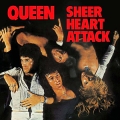 |
Killer Queen (1974) Bass: John Deacon, ‘63 Fender P, likely flats, into Ampeg SVT heads and cabs and H&K heads and cabs source What I Call It: Vintage Smooth |
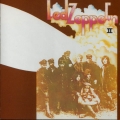 |
Ramble On (1969) Bass: John Paul Jones, likely a 1961 Fender Jazz Bass, debate rages on rounds vs. flats What I Call It: Vintage Smooth |
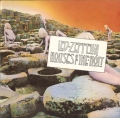 |
The Song Remains the Same (1973) Bass: John Paul Jones, likely a 1961 Fender Jazz Bass, debate rages on rounds vs. flats What I Call It: Vintage Smooth |
Tone #7: Modern Drive
Lest I give the impression that I don’t like any bass sounds recorded more recently than 1976, my last category is one that’s basically ubiquitious in modern country recordings, and a good amount of modern pop. Compared to the previous category, this turns up the low mids (without turning up the low bass that adds rumble) and adds quite a bit of drive and compression, giving a nice stable bottom that to me evokes a low cello sound. I’ll use a couple examples from country songs, but this sound is truly everywhere in country bass, which is mostly recorded by a relatively small number of session bassists who are awesome at cranking this sound out. For variety, I’m also tossing in Jason Mraz’s “I’m Yours”, a recording that I think sounds great across the board, and uses a similar bass sound in a very different musical context.
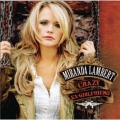 |
Gunpower & Lead (2007) Bass: Glenn Worf, gear unknown, but every image I could find shows him with a P What I Call It: Modern Drive |
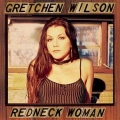 |
Redneck Woman (2004) Bass: Unknown What I Call It: Modern Drive |
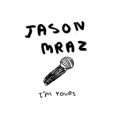 |
I’m Yours (2008) Bass: Martin Terefe, gear unknown What I Call It: Modern Drive |
Conclusion, and a Word On Fair Use
That wraps up today’s tour through a few bass sounds; hopefully I’ve given non-bassists an idea of how bass tones vary, and hopefully I’ve given bassists a reason to mail me in an uproar about the labels I’ve used.
All of the clips used on this page are used under the premise of Fair Use, as material subjected to commentary and analysis. I’ve kept clips to 30 seconds. If you’re a copyright owner and you object to anything I’ve used on this page, please mail me and I’ll remove it ASAP.
Sound clips played via SoundManager 2.
Knowing pretty much nothing about bass, this was both fun to read and educational. If you had played me the bass line on the Kanye, Rihanna, or TI songs and asked me to reproduce it, I would have gone for percussion instruments. It had not occurred to me before reading this post that those were bass lines. In contrast, I would have hummed or gone to the piano to try to reproduce Gimme the Loot’s bass. That was educational.
Now for a series of potentially stupid questions that I’m curious about if you have time to answer them… I was thinking about songs with bass that I’ve noticed and liked and I thought of Criminal on Fiona Apple’s Tidal album and Come As You Are on Nevermind. So, I tried to look up who & what made those sounds… it didn’t go well. Can you tell me what’s going on in those songs and where you would classify them? More specifically my problems were…
Criminal – It sounds to me like an electric instrument, but I saw a picture of her performing that song and there was a large wooden instrument onstage with her. There’s a lot going on in the song, so to be clear I’m talking about the instrument that starts with the drums in the beginning of the song. What does that sound like to you? My Internet searching ability has totally failed me. If applicable, where would you put it in your scheme?
Come As You Are – After trying to look up information about this I’m more confused than ever. First, is the instrument that plays the first, iconic, notes (and then continues to be awesome throughout) a bass? I was completely sure it was and then read confusing things on the Internet about Kurt playing that opening. Second (assuming it was a bass), where would you put it in your classification? I was thinking it sounded like “Overdriven Rock” because it reminds me of the Cure and the Greenday bass examples, but it sounds so much more woody and round/full to me. The other examples in that category sound more metallic and jaggedy to me. Make any sense?
Re: Criminal… this is definitely an electric bass. I’d call it a “deep, gritty” sound, with a little overdrive, probably closest to the “overdriven rock” category (though again, my categories are nearly meaningless other than provoking thought and discussion :)), but with less treble and definitely played without a pick. Perhaps you saw an upright bass in an acoustic version of the song; here’s a video where you can see the electric bass player to her right:
.
Re: Come As You Are. This sounds like a heavily-processed bass, consistent with the spacey vibe of the whole song (lots of chorus effect on the guitar, and probably the vocals). I found this page that says the bass was triple-tracked *and* had effects on it, which sounds plausible:
http://nirvananews.tumblr.com/ComeAsYouAre.
In my post, I basically avoided talking about effects to keep things simple, so it’s very reasonable that you couldn’t quite fit it into the categories I list. Probably 5% of rock/pop bass is significantly processed through effects, compared to probably 60% of rock/pop guitar.
Helpful? Thanks for reading! Hope I’ve started you down a long road of bass addiction!
-Dan